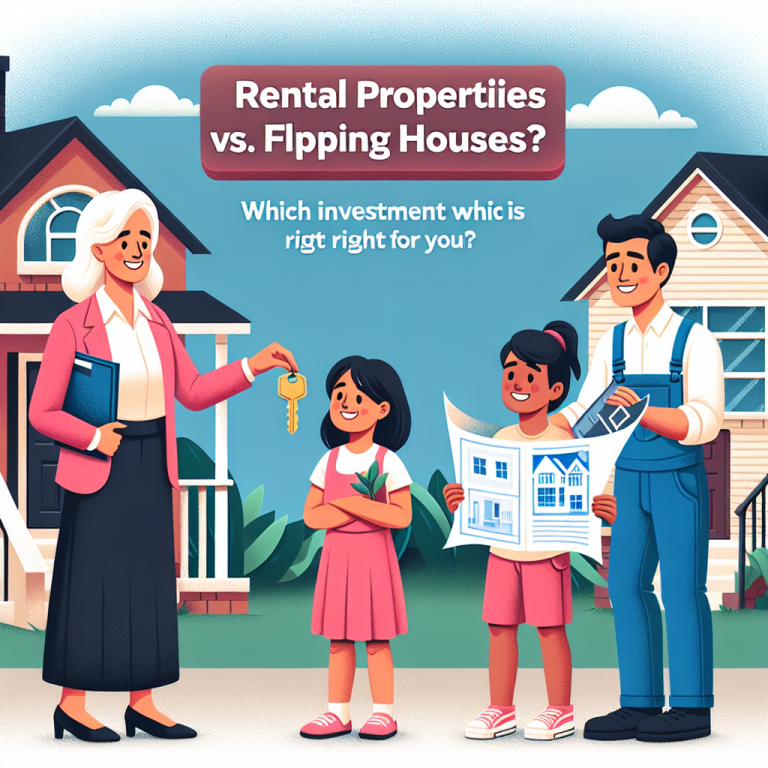Investing in real estate is a popular option for building wealth, but two primary strategies dominate the conversation: rental properties and flipping houses. Each method has its pros and cons, appealing to different types of investors. In this article, we explore both options to help you decide which investment path is right for you.
Understanding Rental Properties
Rental properties involve purchasing a property with the intention of renting it out to tenants. The owner collects monthly rent, which can provide a steady income stream. This option can suit long-term investors who prefer stability and gradual wealth accumulation.
Advantages of Rental Properties
- Steady Income: Rental properties can provide consistent cash flow.
- Appreciation: Properties typically increase in value over time.
- Tax Benefits: Property owners can often deduct mortgage interest and property taxes.
- Passive Income: Once set up, rental properties can require less daily management, especially if you hire a property management company.
Challenges of Rental Properties
- Property Management: Handling tenants and maintenance can be time-consuming.
- Vacancy Rates: Empty units mean no rental income.
- Initial Investment: Buying a rental property typically requires a substantial upfront investment.
Understanding Flipping Houses
Flipping houses involves buying a property, renovating it, and selling it for a profit, often within a short timeframe. This strategy requires a keen eye for potential value and thorough market research. Flippers often aim for quick returns on their investments.
Advantages of Flipping Houses
- Quick Profits: Successful flips can yield high returns in a short period.
- Hands-On: Flipping allows for active involvement in the renovation process and decision-making.
- Market Improvement: Flippers can significantly improve communities through renovations.
- Variety: With different projects, flippers can diversify their investments.
Challenges of Flipping Houses
- Market Risk: Quick sales depend on market conditions, which can be unpredictable.
- High Costs: Renovations may exceed budget estimates, eating into profits.
- Time-Consuming: Flipping can require significant time investment for renovations and sales.
- Skill Requirements: A lack of construction or renovation knowledge can lead to costly mistakes.
Conclusion
Both rental properties and flipping houses offer unique opportunities and challenges. If you prefer a steady income and are willing to take on the responsibilities of being a landlord, rental properties may be the right choice for you. Conversely, if you’re looking for quicker profits and are willing to invest time and effort into renovations, flipping houses could be your path. Assess your financial situation, personal goals, and risk tolerance to determine which investment strategy aligns best with your aspirations.





